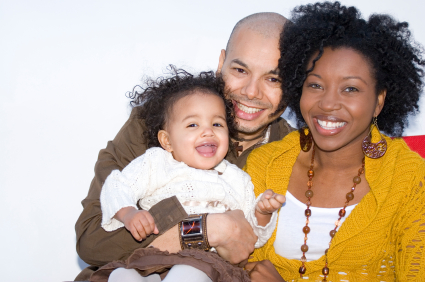
Originally published in the Sept 2012 issue of Destination Magazine
Interracial relationships are becoming more and more common in Kenya, but what’s changed to make them more accepted? Caitlin Nordahl looks at life for people in mixed couples – the hard, the impossible and the love that makes it all worth it
Out in the World
Mary*, 36, left Kenya to go to university in London and study law when she was 18. Soon after she met Michael*, 41, an Austrian also living in London, and it wasn’t long before they were living together.
“When I told my mom, she almost had a heart attack. She went, ‘Come back home immediately!’” Mary remembers, “So we got married, went to the registry…And I told my mom five years later.”
Her family’s strong rejection of the man she loved, before they’d even met him, drove Mary to become more independent.
While it wasn’t intentional, they’ve coped with any disapproval by refusing to care what people think. “Everything that we do within our marriage only concerns us…not private, not withholding, but it’s just nobody’s business,” Michael says. They returned to Kenya two years ago, but they’ve been insulated from societal pressures by their attitude.
That doesn’t mean they don’t see those pressures though, and occasionally it will get to them. Once, while they were still living in London but were visiting Kenya, they had a nasty experience in a Nairobi hotel.
“We were stopped at the barrier because he was white and I was black and the guy wanted to know what room we were going to,” Mary gets out, before Michael cuts in, “So she must be a hooker.”
“It can’t bother me,” Mary says, “I think I have so many other things to worry about than what people think. But the hotel one, that one rubbed me the wrong way. I was just really, really annoyed.”
But this is precisely the kind of thing that makes individual Kenyans say Kenyan society has issues with interracial relationships. And it’s not a rare occurrence. Every couple I talked to had similar stories to share.
“It’s annoying, that’s what it is,” Ruth says of her own prostitution accusations, but she’s quick to add that she doesn’t get upset or angry, “because I know it’s ignorance on their part. Total ignorance. Probably the only people they’ve interacted with are those types of people. Not legit couples or just normal interracial couples.”
Iain, on the other hand, doesn’t see things that way: “[Ruth’s] much more forgiving than I am, I want the guy fired. Anyone who behaves that way should not be working in our hospitality industry.”
However, when they first started seeing each other, in the 90s, things were much worse. “We were waiting for a bus one day and someone actually shouted out the window of a passing car, you know, some nasty things,” Ruth recounts, while Iain remembers, “People would say to her, now that you’re with a white man you need to help us.” If she was not apt to doling out money individuals would become upset and abuse her, accusing Ruth of feeling ‘hot’ now that she landed herself a Caucasian. In an effort to avoid such behaviour the couple made an active decision to avoid certain types of places and restaurants and took public transportation as seldom as possible.
Jonathan*, 35, reflects on a bad occurrence that he and his wife Naisenya *, 32 experienced at a large beach resort in Diani: “We literally sat at the bar waiting to be served a drink for perhaps 20 minutes while foreign tourists and bar staff stared at us like we were animals in a zoo, whispering amongst each other.” The couple were staying at a private home up the beach but were visiting the resort for a drink before going out to dinner. After some time a guard approached Naisenya and asked in Kiswahili what the couple wanted. “I ignored him and looked toward my husband.” Shaking his head Jonathan expresses his disappointment, “We said that we would like to order a beverage but instead were escorted out of the resort.” The couple spoke to the manager who disregarded the issue. The same resort has been in the media several times in the last year, charged with a number of similar instances.
For Chaka, the worst of it came in the UK. “Literally, I’ve had someone spit on the floor…right in front of me and just walk away saying, ‘Disgusting.’” But in Kenya, for the two of them it all comes down to money. Dani says that she’s typically given the bill or asked for money when they’re out, even though she’s completely dependent on him.
All of the couples interviewed have had the same experience. It is always assumed that the mzungu or Asian is financing therelationship. “I actually don’t like holding the money,” Dani says, “Because if we go somewhere, like even to Nakumatt, and I get the money out…I feel that they’re looking at me like, ‘Mmhmm, she’s the one with the money, paying for him.’ And I don’t like them thinking that of Chaka.”

